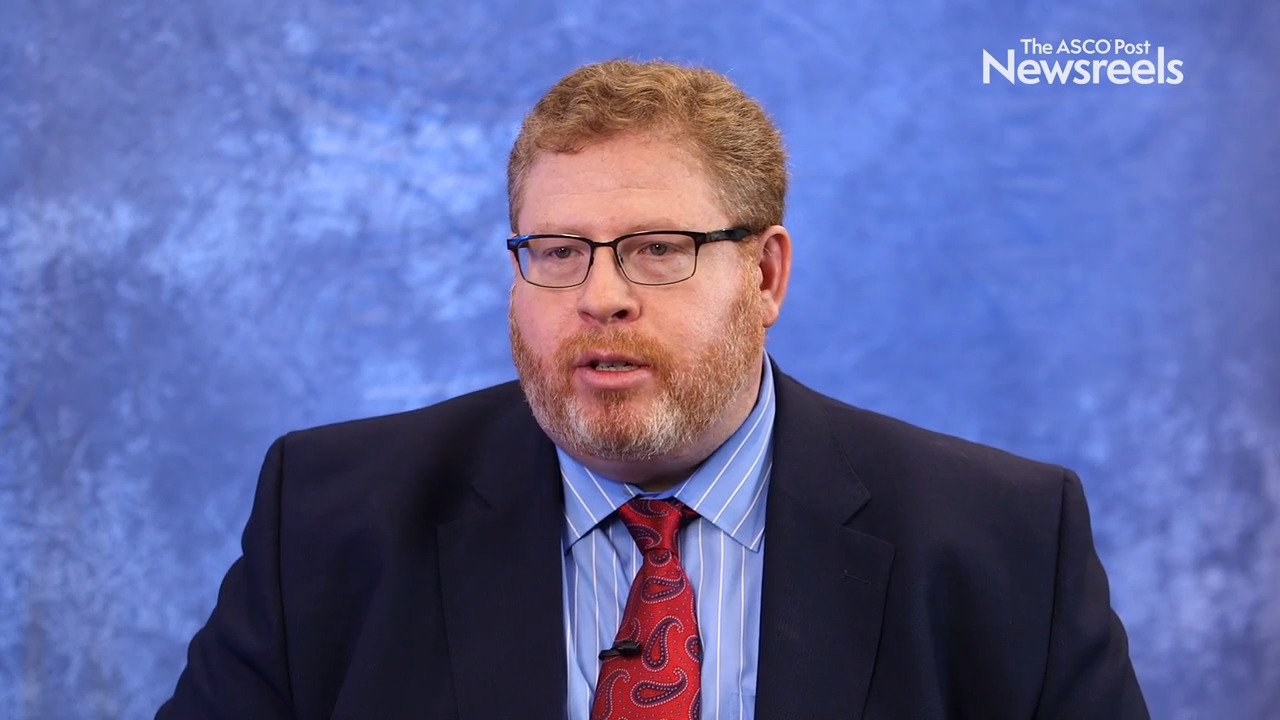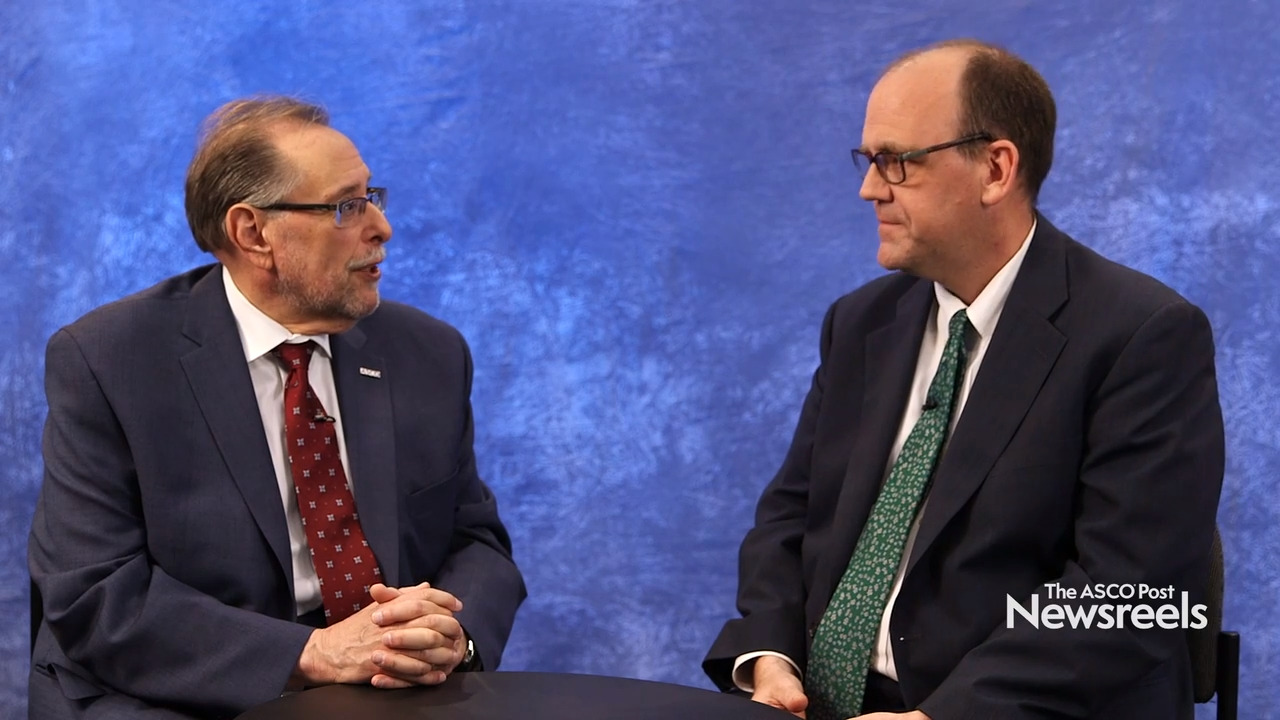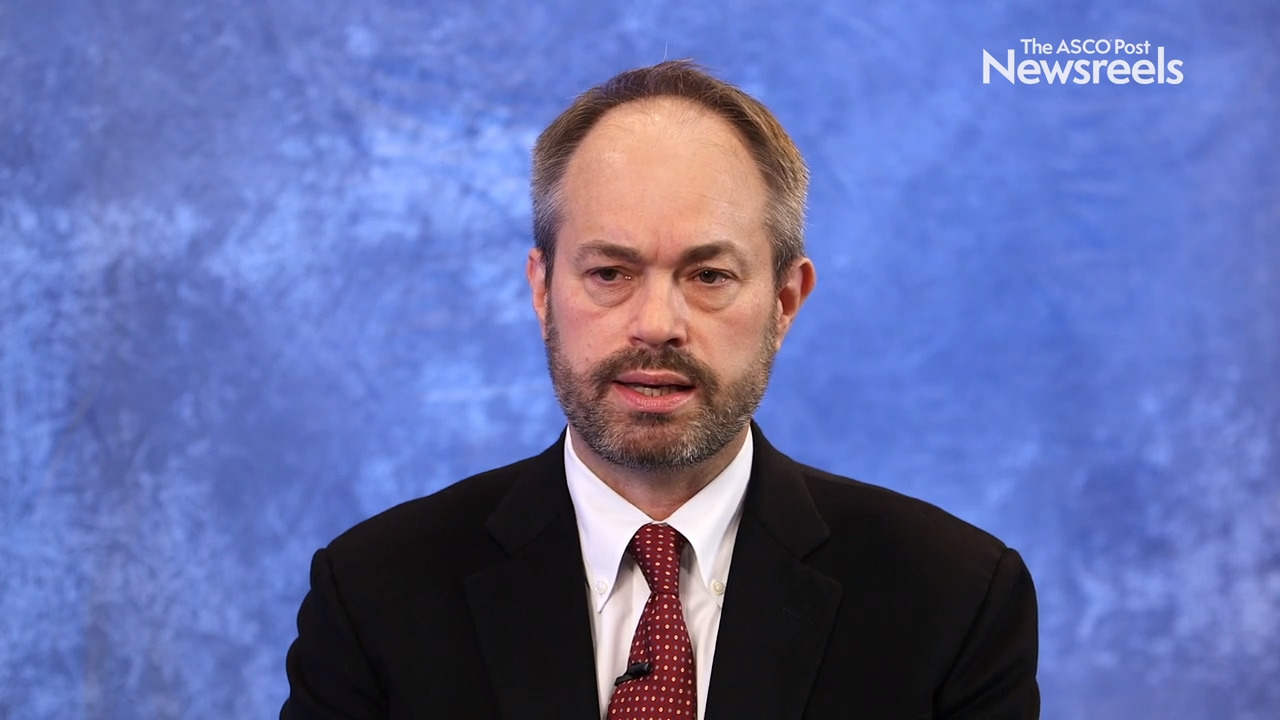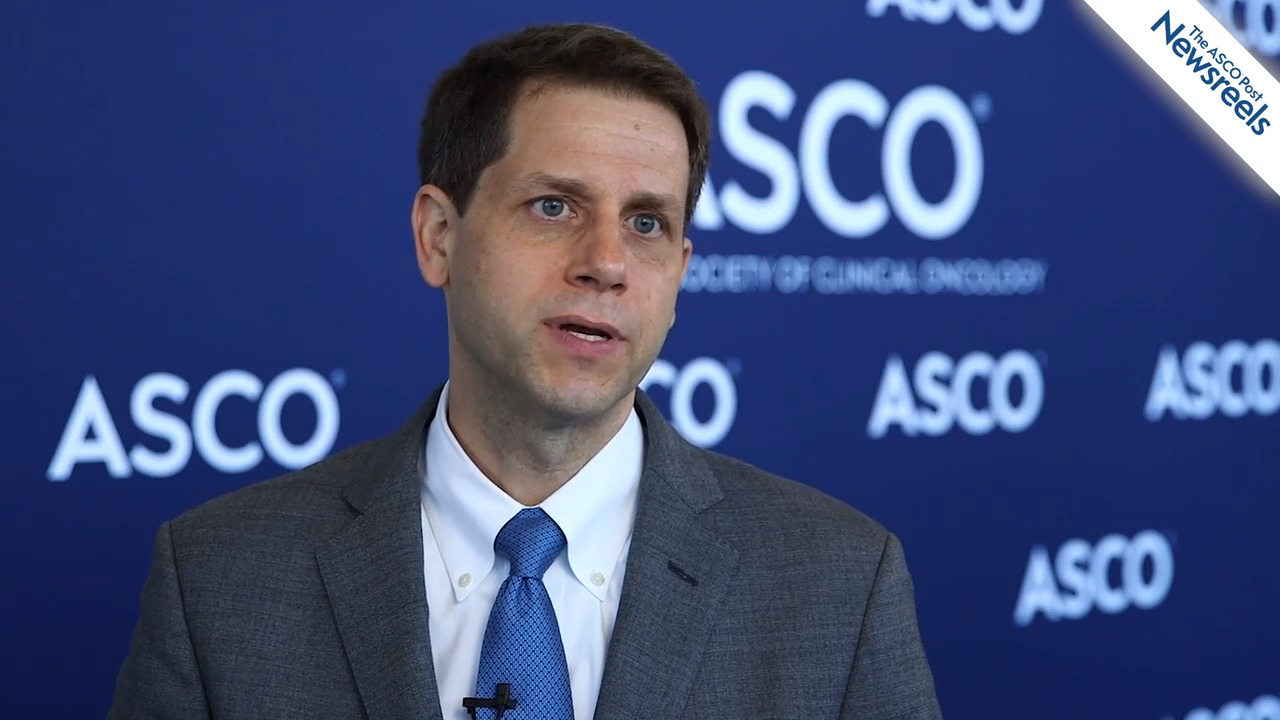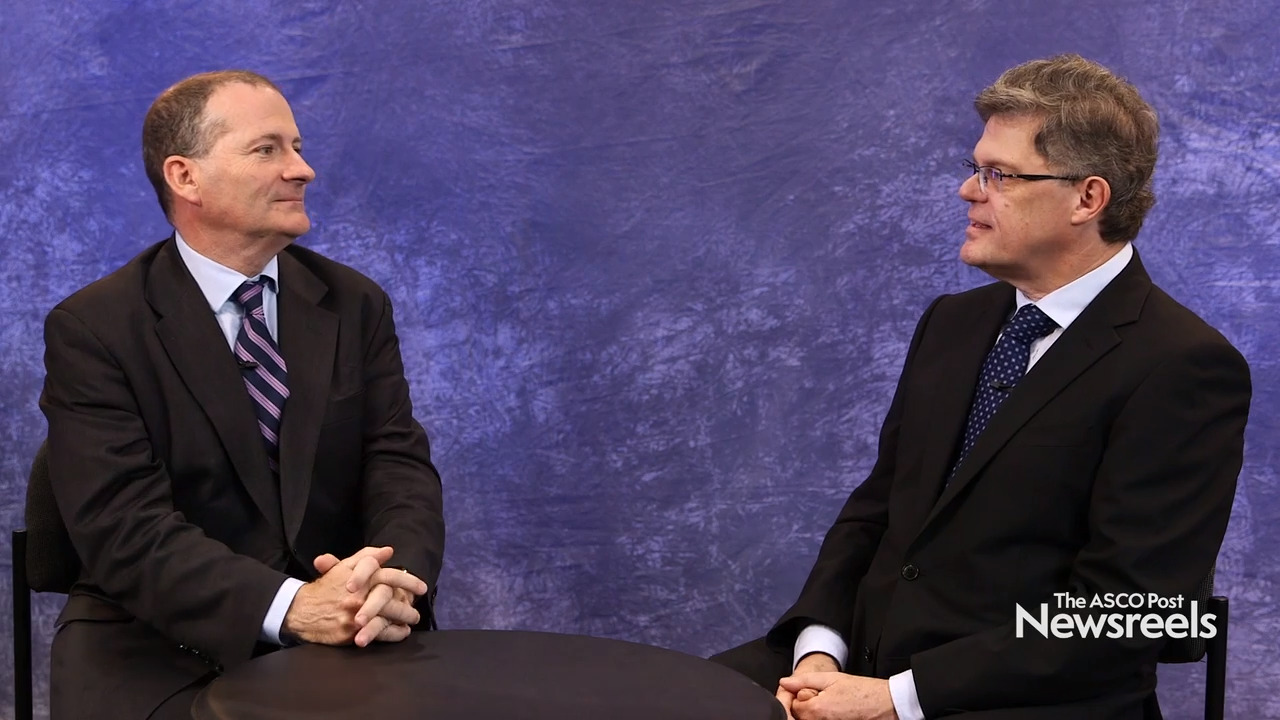François-Xavier Mahon, MD, PhD, on Chronic-Phase Chronic Myeloid Leukemia: Treatment-Free Remission After Second-Line Treatment
2019 ASCO Annual Meeting
François-Xavier Mahon, MD, PhD, of the Université Bordeaux and Institut Bergonie, discusses results of the ENESTop study, which demonstrated the long-term durability and safety of treatment-free remission in chronic-phase CML after second-line nilotinib (Abstract 7005).
Jonathan E. Rosenberg, MD, of Memorial Sloan Kettering Cancer Center, discusses results from the phase III Alliance trial, which showed that adding bevacizumab to gemcitabine and cisplatin did not improve overall survival in patients with metastatic urothelial carcinoma, but did improve progression-free survival (Abstract 4503).
Richard L. Schilsky, MD, of ASCO, and R. Donald Harvey, PharmD, BCOP, of Winship Cancer Institute of Emory University, discuss their study findings that expanding the clinical trial eligibility criteria for patients with advanced NSCLC would enable nearly twice as many people to be considered for participation (Abstract LBA108).
William G. Wierda, MD, PhD, of The University of Texas MD Anderson Cancer Center, discusses the TRANSCEND CLL 004 trial, which studied the use of an experimental CD19-directed CAR T-cell product in heavily pretreated patients with chronic lymphocytic leukemia or small lymphocytic lymphoma (Abstract 7501).
William D. Tap, MD, of Memorial Sloan Kettering Cancer Center, discusses negative study findings on doxorubicin plus olaratumab vs doxorubicin plus placebo, which showed no difference in overall survival between the two treatments in patients with advanced soft-tissue sarcomas. The manufacturer is currently withdrawing olaratumab from the global market (Abstract LBA3).
Christopher Sweeney, MBBS, of Dana-Farber Cancer Institute, and Ian D. Davis, MBBS, PhD, of Monash University and Eastern Health, discuss the Australian and New Zealand Urogenital and Prostate Cancer Trials Group, working globally to speed clinical research in and treatment of urogenital cancers.
